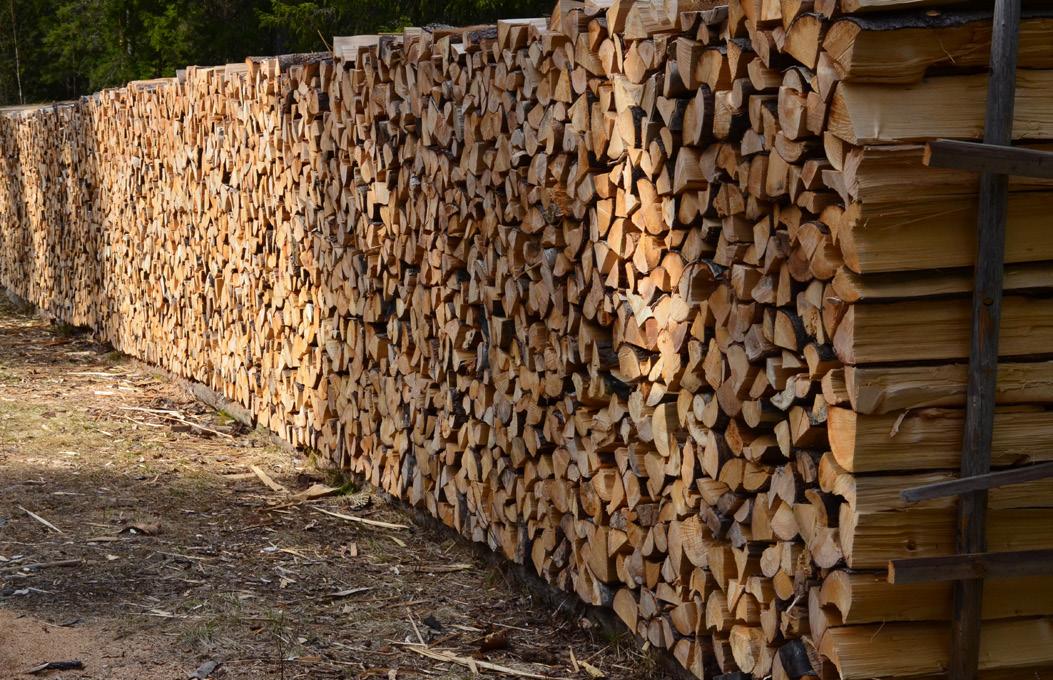
20 minute read
Industry 4.0
EPISODE 7
Rob Miller, Wittmann Battenfeld Canada Inc. / ROTOLOADTM
Happy April!
It’s hard to believe that April is already upon us. For many of us in the North, spring is just around the corner, giving us hope of warmer weather, sunshine, and getting back outside. Even though it sometimes seems like our days are on endless repeat, time is still passing, and some days are passing quickly.
In the last episode, we made a request of some industry questions, interested in where 4.0 can perhaps take us. Thankfully, there were a few responses. Our first question comes from Dutchland Plastics.
Question: Will we be able to accurately predict the range of ‘size dimensionally’ knowing the construction of the mold and the material specifications? In other words, if I have my final design, using digital reproductions of the mold and material, can you tell me for 100 pieces what the high and low dimensions will be, factoring in the breaking in or conditioning of the new mold?
Answer: In trying to determine the best investigation and response, I looked very basically at what is required to make any ROTO part. This includes the mold, resin, machine, and process (process parameters). In order to provide the most detailed and accurate answer, I wanted to investigate each of these factors a little deeper to see how they might contribute to the net result.
The Mold
To get started with the mold perspective, I first reached out to Vince Costello of Diversified Mold and Castings Co. Vince responded with “All mold styles (CNC, Cast, and Fabricated) are built to more or less ‘industry standards’ from a tolerance standpoint. Each individual mold builder has tolerance standards they work to, but they may vary from mold builder to mold builder. That said, what’s important is that any mold can be measured dimensionally and qualified to meet the dimensional tolerance expected by the mold builder and the customer. That is the easy part.”
Then I reached out to Sandy Scaccia of Norstar Aluminum Molds, Inc. He responded with “Interesting question, because ‘range’ or ‘dimensional’ tolerance is not in control of the mold.” Things that affect dimensional range are as follows: • Material consistency • Rate of heat up • Rate of cool down • Amount of cure of the parts
INDUSTRY 4.0
EPISODE 7
• Amount of mold release applied • Variability of venting (improper or inconsistent packing) • Wall thickness • The presence of inserts • Consistency from cycle to cycle
In summary, their responses were quite similar; they both brought up that the mold itself cannot be relied upon to control the dimensional stability of the parts coming from it. While different mold manufacturing techniques (Fabricated-loosest, Cast-moderate, and CNC-tightest) will have some net effects on the tolerance of the produced parts, there are far too many outside factors contributing to the process to predict dimensional stability based purely on the method of construction of a mold.
The Resin
Even outside of the various grades of polyethylene, the tolerance of the parts in the end is much more reliant on the process itself than the tools or material used for the manufacturing of the specific part. Having a couple of discussions with my resin friends, I was able to understand a little better the exact chemistry and physical properties of the plastic. When it is fully melted, polyethylene molecules move around freely in a random order.
It always helps me to think about processes in my head if I can put a picture to it. Think of a dump truck full of firewood, all thrown in randomly. As the polyethylene cools, movement of the molecules stops, and their order becomes fixed.
Now think of the load of firewood being dumped. Polyethylene is a semi-crystalline polymer, meaning that it contains both crystalline and amorphous molecules.
Next, imagine the air between the pieces of firewood. When polyethylene is cooled, there will be regions of a combination of structured molecules (crystalline) and unstructured molecules (amorphous).
Now think of the firewood sitting in a huge, random pile. There are a number of factors that can affect the amount of crystalline and amorphous fraction in polyethylene and this ultimately is what affects shrinkage and warpage of the rotomolded part.
Next, imagine how long it takes you to pile the sticks of firewood. In the rotomolding process, the rate of part cooling has a significant effect on the crystalline and amorphous amount fractions and therefore has a large effect on shrinkage, warpage, and the physical properties of the part. The longer you take to organize and stack the firewood, the smaller spaces (less volume) that it will take up as you reduce the amount of air between the sticks. A slower part cooling process allows more time for the polymer to crystallize, so there will be larger regions

INDUSTRY 4.0
EPISODE 7
of the crystalline structure resulting in the rotomolded part being a bit smaller.
Picture a nice, single-file pile of firewood sticks. An inconsistent cooling rate throughout a day or week, due to ambient plant temperature changes and other outside influences, both during and after the cooling cycle, will result in inconsistencies related to part shrinkage and warpage.
Imagine you receive multiple firewood deliveries by different people in different trucks and each day, the firewood is stacked differently. The use of Industry 4.0 principles and control techniques to ensure consistent part cooling over a range of varied ambient conditions will result in less variability in part shrinkage and warpage, and a more consistent part outcome.
Now picture that there are specific instructions for how to pile the firewood, and each pile should be very close to the same size and density. Therefore, the ability to use this technology as well as data parameters to ensure consistency will allow for some level of prediction with increased accuracy.
The Machine
Reaching out to Adam Covington, president of Ferry Industries, certainly gave me a little more insight. Covington’s statement is as follows: “Rotational molding machinery, particularly Ferry’s RotoSpeed machines, currently offer semi-automated process control monitoring and active process improvement features. These are designed and intended to enhance part consistency and reduce the influence of variables that impact part dimensional stability. Existing tools for active feedback and data logging are intended to support improved process control and repeatability. This valuable data can be used to drive changes to process recipes autonomously and manually. However, the machine software and hardware can’t predict what the final part tolerances will be. Machine systems can support significantly narrowing the field of variables that contribute to inconsistent parts throughout the cooking, cooling, and service activities while on the machine, particularly when driving machine actions based on live sensor feedback. The machinery and its data can support communication to other equipment as a part of the Industry 4.0 system, but reliable prediction of part sizes prior to molding is likely not possible at this stage. Rather, this collection of data and the interactions of the molding cell system can aid in driving tighter process control from silo to shipping dock, enabling the molded parts to meet final, intended design specifications and tolerances more consistently.”
The Conclusion
The short answer to Dutchland Plastics is an unfortunate no. Industry 4.0 principles are not able to provide any pre-molding predictions to the accuracy and consistency of the tolerance of any given 100 parts.
However, industry 4.0 principles can absolutely be applied to the process to take all of the operator decision making and environmental inconsistencies out of the process to guarantee the best possible and most consistent outcome, cycle after cycle.
All of the industry colleagues that I discussed this topic with were adamant, and in agreement, that it is the environment and the consistency of the process that can and will contribute to the quality of the parts.
Remember from my earlier episodes that one of the key components of Industry 4.0 is a very large amount of data. This is where data can become useful. Using readily available technology to measure and record environmental conditions, plant ambient temperatures, machine process temperatures, oven heats, pre-cool, cooler temperatures, and levels of humidity can provide a vast knowledge base of how a given process performs under a specific set of circumstances.
Taking that vast data and using AI to pair that information with PIAT information as well as IRT can lead to a very repeatable process, regardless of the given changes and normal fluctuations of a specific environment.
This requires some work, interpretation of the data, perhaps some primary machine controls and hardware upgrading, and most of all, communication with the primary process machinery. But it can work, and very efficiently in a number of other industries and environments. I mentioned in one of my earlier episodes the comparison of mass farming principles.
Gone are the days of the farmer going out and picking up a handful of dirt, letting it filter through his fingers to bow away in the prevailing winds, then using his gut instinct to determine when to plant or when to harvest.
Most commercial farming operations (organic, non-GMO, or fully engineered) are all highly advanced. They are all going high -tech, using drone moisture analysis, sunlight, and temperature comparisons as well as a vast array of other technologies to track every single aspect of the environment and their fields. They use this vast data to automatically determine every possible step and influence of the planting, growing, watering, fertilizing, and harvesting process.
In farming as well as ROTO, it starts with talented, experienced individuals on our teams to ensure that we are using the data to the best possible results. All applications of Industry 4.0 principles require human thought, input, and justification. However, the theory is that once a process is in motion, data can be used to guarantee the outcome.
The fact is that we have that experience and intel within our human capital. Over the last several months, I have not spoken to a molder that has too many people. When is the right time to invest in the knowledge and experience of our trusted employees and maximize our quality and output with the minimum amount of manual labor? Reducing our labor component and allowing for the best possible yields will only add to the ever-important bottom line.
Industry 4.0 is proving across a vast array of manufacturing industries that the time is now!
ARMO
NEWS
ARMA | ARM-CE | ARMSA | BPF | IT-RO | NORDIC ARM | StAR
ASSOCIATION OF ROTATIONAL MOULDERS AUSTRALASIA INC. • ARMA
Presidents Report – Trudi Duncan
It is an intriguing feeling for myself to miss seeing you all over the last 18 months, but I have recently recognised that is exactly what I am experiencing. It is a true highlight of our industry; feeling that genuine want to connect with you all, to discuss the trials, tribulations, and successes of our various endeavours both professional and personal. Very few organisations have such a connected group of people across the globe. I know that my work life would not be as enriched without you all in it and I acknowledge all that I have and can continue to learn from you going into the future.
At our ARMA events, it is not only the Rotational Moulding knowledge that I take away with me, but various other ancillary tips and tricks to help make both my work life and personal life easier. I have, as have many of you, been extremely lucky to go even further and been invited into factories to tour facilities and see firsthand the technology and techniques used within various companies to aid them in their process. So, you can see that a big chunk of my professional development is disrupted by not being able to connect with you all!
As a result, my thought is to share with you some tech that myself and fellow ARMA members have found useful over the last 12 months. Hopefully, there is something in here that intrigues you or helps you to organise, declutter, inspire, teach, and/ or learn. If you like something, please let me know! Conversely, if there is any technology that has made an impact in your life recently, I would love to know about that too. 1. Trello: Online & Mobile App: an easy-to-use online project management software with a great mobile app, Trello is a fully customizable, visual collaboration tool which you can set up however you want and allows you to create a shared perspective of organising all your to-do’s in a flexible, simple way. It has a “sticky note on a wall” feel and set up is super easy. It has a whole host of integrations and can be used for things such as mind-mapping a system, to simple production workflows, to keeping track of the status of custom order enquiries.

ARMO
NEWS
2. Genius Scan/Adobe Scan: Mobile App: quickly and easily take a picture on your phone or tablet and create a “scanned” document. Integrate with online storage options such as
Google Drive and Dropbox. We use this feature in factory to quickly capture goods documents, production cycle count documents, etc., and store them online with an easily searchable function. 3.Cloud HQ Meeting Scheduler for Gmail: If your email hosting is through Gmail - include a link in your email where people can easily and quickly schedule a meeting with yourself using your availability in Google Calendar without the backward and forward of “are you available, am I available”. 4. Workplace App/Slack: Use this for everyday communication between teams and companywide. Easily chat with team members off-site, post pictures of installations you see in the field, see what others are working on and posting about and to easily stay up to date. Consider this a more visual and interesting way to stay in the loop rather than email. 5. Youtube: Created unlisted videos that you can share with your team via a website link, record, and easily store your staff & tool-box meetings. A great resource if you have members who cannot be on-site for meetings and you cannot conduct them via Zoom or similar web-based meeting platforms. 6. No Bullsh*t Leadership Podcast by Chris Hirst: A straightforward, plainly worded podcast, giving you a practical guide for what techniques leaders can use every day to get stuff done. 7. The Ideal Team Player Audiobook by Patrick Lencioni: “The
Ideal Team Player presents a powerful framework and easyto-use tools for identifying, hiring, and developing ideal team
players in any kind of organization. Whether you are a leader striving to create a culture of teamwork, a human resources professional looking to hire real team players or an employee wanting to make yourself an invaluable team member, this book will prove to be as practical as it is compelling.” 8: Cyberlink Power Director: This allows you to produce and publish pictures, audio, and movies that are branded and comes with a ton of effects including picture in picture. Cheap fast easy to use and allows you to edit raw video files, etc., into videos that are good enough to share with clients globally.
As previously reported the ARMA Masterclass at the Machine Technical Series has been filmed in factories over the past few months and the final footage is being collated. In line with the launch of this training, more localised events will be organised in capital cities such as Auckland, Brisbane, and Melbourne in the month of June.
The training will then go online and be available to purchase for continued access on a company basis. Keep your eye out for future promotions on this!

Rotomould Conference Postponed to 2022
The ARMA Board of Directors have made the difficult decision to postpone our annual conference to the 19th – 21st June 2022. It will still be held in the stunning Hobart location. The international borders in Australia and New Zealand are currently closed and will be unlikely to open until towards the end of the year. As well as this state borders close suddenly, which discourages travel even within Australia.
Masterclass at the Machine
MASTERCLASS
A T T H E M A C H I N E
ARMO
NEWS
BRITISH PLASTICS FEDERATION ROTATIONAL MOULDING GROUP • BPF
Massive tax ‘super deduction’ scheme for plant and machinery investment explained at BPF webinar

• BPF webinar open to all plastics companies • Live Q&A session
The Chancellor presented an exciting development opportunity for UK plastics companies within his recent Budget. A new ‘super deduction’ tax break was announced that allows companies to cut their tax bill by 25% on every £1 they invest between 1 April 2021 and 31 March 2023, was discussed at a British Plastics Federation webinar.
Presented by tax specialists Mark Simpson and Timothy Jarvis, who are partners at Squire Patton Boggs, the global law firm, the webinar examined the opportunities this tax deduction scheme presents for companies within the plastics industry. For example, companies investing in qualifying new plant and machinery assets will be able to claim:
• A 130% capital allowance on their new plant and machinery investments • A 50% first-year allowance for qualifying special rate assets
This new tax deduction is intended to stimulate investment in productivity – enhancing plant and machinery assets that will help businesses grow. This new support makes the UK, the world for the net value of the plant and machinery allowances according to the Organisation for Economic Co-operation and Development (OECD).
A company investing £1m in qualifying expenditure, for example, can claim a deduction of £1.3m (130% of the initial investment) when calculating its taxable profits. Deducting £1.3m from taxable profits will save the company up to £247,000 on its corporation tax bill.
Commenting on the scheme, BPF Director General Philip Law states: “This tax deduction scheme will boost investment in new machinery and equipment in the UK plastics industry at a vital time, providing companies with an opportunity to improve their productivity, global competitiveness, and environmental profile. We encourage plastics manufacturers and recyclers to ensure they capitalise on this government concession”.

ARMO
NEWS
‘Understanding the New Tax Super-deduction Scheme for Plant and Machinery Investment’ also featured a Q&A session.
Companies can visit the BPF website to find out more at www.bpf.co.uk
The Government have updated their testing and financial support guidance, please see the updates below:
Free Workplace Testing
All businesses regardless of size are now able to register to order free workplace testing kits for their employees who are unable to work from home. Register interest by 31 March to access regular free workplace testing.
Self-Employment Income Support Scheme
Find out if you are eligible for Self-Employment Income Support Scheme fourth grant which will cover the period February 2021 to April 2021: • grant will be set at 80% of 3 months’ average trading profits, paid out in a single installment, capped at £7,500; • grant will consider 2019 to 2020 tax returns and will be open to those who became self-employed in tax year 2019 to 2020; • to be eligible for the fourth grant you must be a self-employed individual or a member of a partnership.
Deferred VAT Payments
Find out how to pay VAT payments deferred between 20 March and 30 June 2020. You can pay now or join the VAT deferral new payment scheme. If you’re on the VAT Annual Accounting Scheme or the VAT Payment on Account Scheme, you can join the scheme from 10 March 2021. Further information is available here.
SME Toolkit
• The government have published a document that provides an overview of actions to take, outlines support, helplines and resources that may be useful for SMEs, as well as signposting more detailed guidance on Government websites. • The SME Brexit Support Fund could give businesses up to £2,000 to help with training or professional advice, if your business has up to 500 employees and no more than £100 million annual turnover.
New Rules on Professional Qualifications
If businesses wish to practise a regulated profession in the EEA or Switzerland and have not yet had their professional qualifications recognised in the EEA or Switzerland, businesses should: • Check the European Commission’s Regulated Professions database to find out if their profession is regulated where they intend to work. • Contact the single point of contact for the country in which they intend to work to find out how to get their professional qualification recognised there.
Association of Rotational Moulders Australasia Inc. Tel: +61 (0) 7 3812 1450 www.rotationalmoulding.com CEO: Michelle Rose Cheif Executive Officer: Michelle Rose michellerose@rotationalmoulding.com
Association of Rotational Moulding (Central Europe) e.V. (ARM-CE) MAUS GmbH - Rotationsgießformen Am Viehweg 9 - D-76229 Karlsruhe Amtsgericht Mannheim, HRB 103433 Tel.: +49 (0) 7 21 / 9 48 74 12 Fax: +49 (0) 7 21 / 9 48 74 44 Mr. Oliver Wandres, ARM-CE Chairman info@rotational-moulding.de www.rotational-moulding.de Association of Rotational Moulders Southern Africa PO Box 6966 Birchleigh 1621 Gauteng South Africa Tel: +27 82 772 3769 Fax +27 12 541 1738 Chairman: Wayne Wiid info@armsa.co.za www.armsa.co.za
British Plastics Federation Rotational Moulding Group 6 Bath Place Rivington Street London EC2A 3JE United Kingdom Tel: 020 7457 5000 Fax: 020 7457 5045 Chairman: Mr. Philip Maddox PhilipM@LeafieldEnv.com IT-RO Italia Rotazionale Katia Zoppetti Via E. Brigatti 12 20152 Milano (MI) Italy Tel: +039 348 7652560 www.it-ro.it
The Nordic Association of Rotational Moulders Executive Board Chairman: Mr. Ronny Ervik ul. Zielona 8, 61-851 Poznan, Poland Tel: +48 607-126-004 Fax: +48 61-858-8611 info@rotomoulding-europe.org www.nordicrotomoulding.org www.rotomoulding-europe.org Society of Asian Rotomoulders (StAR) 40/145, Ground Floor, Chittaranjan Park New Delhi 110019 Tel: + 91-11-41630157 Fax: +91-11-41634952 Mob: + 91- 9810305356 sb.zaman@staraisa.org arnacz@satyam.net.in www.starasia.org
GLOBAL
CALENDAR
APRIL 13-16, 2021

CHINAPLAS
Shenzhen, China

ROTOPLAS 2021
Rosemont, Illinois USA rotomolding.org • SAVE THE DATE (final decsion with COVID in mind to come in June) MARCH 21-25, 2021
GLOBAL
CALENDAR
FEBRUARY 4-8, 2022

PLASTINDIA
Pragati Maidan New Delhi, India

ADVERTISERS’ INDEX
60 ExxonMobil Chemical Co. PO Box 96126 West Springs Calgary, Alberta Canada, T3H 0L3 800.668.0177 kevin.c.jamieson@exxonmobil.com https://www.exxonmobilchemical.com /en/products-and-services/ polyethylene
7 Ferry Industries, Inc. 4445 Allen Road Stow, OH 44224-1093 USA 330.920.9200 sales@ferryindustries.com www.ferryindustries.com
9, 15 Jerico Plastic Industries, Inc. 7970 Boneta Road Wadsworth, OH 44281 USA 330.334.5244 Minerva Plant: 330.868.4600 steve@jericoplastic.com www.jericoplastic.com
11 Matrix Polymers The Priory Orchard Hill Little Billing Northhampton, NN9 9AG United Kingdom +44.1604.789100 sales@matrixpolymers.com www.matrixpolymers.com
21 NOVA Chemicals 1555 Coraopolis Heights Road Moon Township, PA 15108 412.490.4311 Doug.Biela@novachem.com www.novachem.com
5 OREX Rotomoulding SP. Z O.O. Cieszyriska 6, 43-520 CHYBIE Poland +48 32 440 83 15 magda.wantola@orex.pl www.orex-rotomoulding.com
48 Poliplast S.p.A. Via Carrali, 8 24020 Casnigo (BG) Italy +39.035.724145 info@poliplastspa.com www.poliplastspa.com
3 Powder King, LLC 41780 N. Vision Way Unit 120 Bldg. 2 Anthem, AZ 85086 USA 623.551.9897 sales@powder-king.com www.powder-king.com
2 Roto Polymers 26210 Emery Road, Suite 202 Cleveland, OH 44128 USA 1.844.POLIMER (1.844.765.4637) info@rotopolymers.com www.rotopolymers.com
59 Rotomachinery Group Via Crosa, 53 28065 Cerano (NO) Italy +39.0321.772021 polivinil@polivinil.com www.rotomachinerygroup.com
57 VMP, Inc. 24830 Avenue Tibbitts Valencia, CA 91355-3404 USA 888.4.VMP.INC 661.294.9934 info@vmpinc.com www.vmpinc.com
23 Wittmann Battenfeld Canada Inc. / ROTOLOADTM 35 Leek Crescent Richmond Hill, ON L4B 4C2, Canada 905.887.5355 Toll Free: 1.888.466.8266 info@wittmann-group.ca www.wittmann-group.ca

625 West Market Street Salinas, CA 93901 USA
PRINTED MATTER
PRIORITY MAIL INTERNATIONAL U.S. POSTAGE PAID AUSTIN, TX PERMIT NO. 2515
Delivering proven performance so you can innovate with confidence.

Your rotational molding capabilities begin with the quality and dependability of your polyethylene resin supply. Start your day with PE products and process innovations that help leading rotomolders bring their most complex designs to reality. Accomplish more with our reliable supply network, responsive sales support and expert technology team.
Learn more about how we can work together to grow your business.


